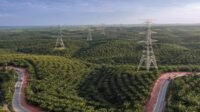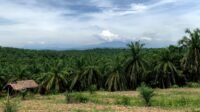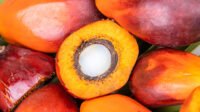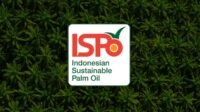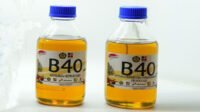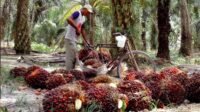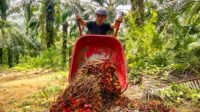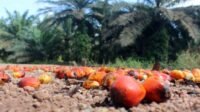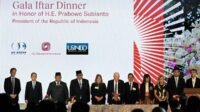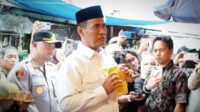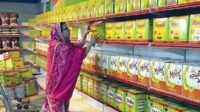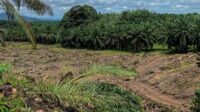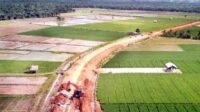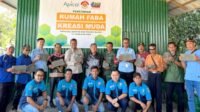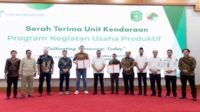PALMOILMAGAZINE, JAKARTA — Efforts to strengthen sustainable finance in the palm oil sector have entered a new phase. Transformasi untuk Keadilan Indonesia (TuK INDONESIA) and IPB University’s Center for Agrarian Studies–International Research Institute for Social, Economic, and Regional Development (LRI IPB University) officially launched the Palm Oil Plantation Sector Exclusion List, an instrument designed to help financial institutions avoid high-risk financing. The launch, held on 18 November, comes amid rising concerns over greenwashing and limited transparency across the industry.
TuK INDONESIA Executive Director Linda Rosalina stressed that the Exclusion List is not a punitive tool, but a guide to help financial institutions strengthen governance in their financing decisions.
“Greenwashing continues to thrive, especially when public data is insufficient. The Exclusion List helps financial institutions identify and avoid high-risk financing. The goal is to reinforce Indonesia’s sustainable finance ecosystem,” she said in an official statement to Palmoilmagazine.com, Saturday (22/11/2025).
Prof. Dr. Arya Hadi Dharmawan, Head of LRI IPB University, explained that the list was developed based on sustainability ethics. He underscored the need for caution, noting that every economic activity produces negative externalities—from pollution to biodiversity loss.
“These moral and ethical standards are not simply about punishment. We want to ensure the palm oil industry delivers intergenerational benefits in line with sustainability principles,” he said. The instrument also aligns with the concept of purpose-oriented finance, ensuring that all financial flows support sustainable development goals.
Majority of Palm Oil Companies Fail Basic Standards
Assessment of 185 palm oil companies revealed alarming results. Abdul Haris, Head of Advocacy and Public Education at TuK INDONESIA, said that most companies failed to meet even basic administrative requirements.
“Of the 185 companies assessed, only 36 passed administrative checks. How can a company claim to be sustainable when it cannot meet basic administrative standards? This shows weak oversight and poor data availability, even within ISPO and RSPO certification systems,” Haris emphasized.
Bayu Eka Yulian, Head of IPB University’s Center for Agrarian Studies, added that sustainability is impossible without transparency.
“The Exclusion List is a collaborative instrument. Transparency is key so all parties can engage in dialogue and ensure the development trajectory of the palm oil sector remains credible. It is also a call to safeguard the sustainability of Indonesia’s palm oil industry,” he said.
From the government’s side, Togu Rudianto Saragih of the Directorate General of Plantations at the Ministry of Agriculture welcomed the initiative. He noted that the Exclusion List aligns with regulatory mandates, especially Law No. 39/2014, which underscores the role of communities in monitoring.
“This initiative deserves appreciation. The Exclusion List can be an important tool to ensure companies comply and operate transparently. Some companies have reported data, but the majority are still failing to meet their obligations,” he stated.
The launch of the Exclusion List is expected to set a new benchmark for financing decisions while driving improvements in corporate governance and the protection of community rights and the environment.
TuK INDONESIA and IPB University called on the government, financial institutions, business actors, civil society, and the public to use the list as a reference for strengthening oversight and advancing more responsible financing practices. (P2)



